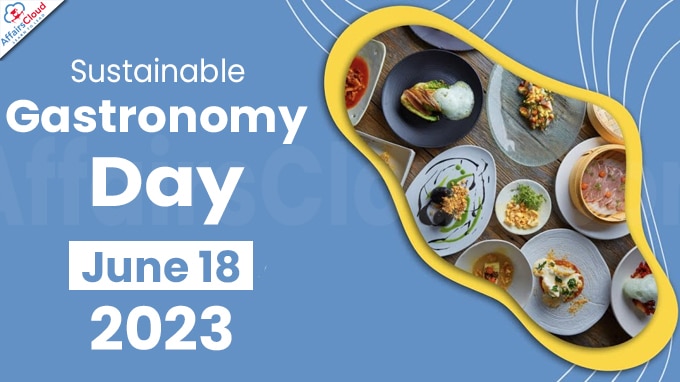
The United Nations(UN)’s Sustainable Gastronomy Day is annually observed across the globe on 18th June to create awareness about the important role of gastronomy towards sustainable development.
- The day also recognises the practices involved with sustainable food consumption, particularly the art of collecting and preparing the food we eat.
The annual observance of Sustainable Gastronomy Day is led by the United Nations Educational, Scientific and Cultural Organization (UNESCO) and the Food and Agriculture Organization of the UN (FAO).
Background:
i.The United Nations General Assembly(UNGA) adopted the resolution A/RES/71/246 in December 2016 and proclaimed the 18th June of every year as Sustainable Gastronomy Day.
- The resolution also acknowledged gastronomy as a form of cultural expression linked to the natural and cultural diversity of the world.
ii.The first-ever Sustainable Gastronomy Day was observed on 18th June 2017.
Gastronomy:
Gastronomy, the art of food, also refers to a style of cooking from a particular region. It also refers to the local food and cuisine.
Sustainable Gastronomy:
Sustainable Gastronomy refers to the concept of doing something like. agriculture, fishing, or even food preparation, in a way that does not waste natural resources and can be continued in the future without harming our environment or health.
Efforts towards Sustainable Gastronomy:
UNESCO launched the UNESCO Creative Cities Network in 2004 to share best practices and develop partnerships in 7 creative fields.
- As of 2021, 36 cities have been designated Creative Cities of Gastronomy.
FAO promotes green culture diets which are healthy as well as sustainable.
5 Principles of Sustainable Food and Agriculture:
- Increase productivity, employment and value addition in food systems
- Protect and enhance natural resources
- Improve livelihoods and foster inclusive economic growth
- Enhance the resilience of people, communities and ecosystems
- Adapt governance to new challenges




